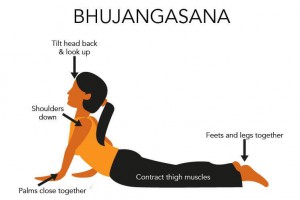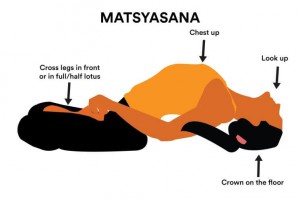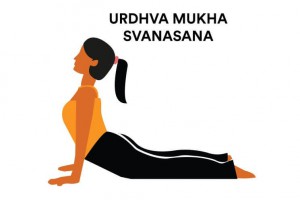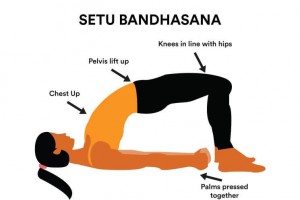
Our immune system does a remarkable job of defending us against disease-causing microorganisms. But sometimes it fails: A germ invades successfully and makes you sick. Is it possible to intervene in this process and boost your immune system? Can some exercises help in improving our overall immunity? Yes! Certain yoga asanas can definitely help in improving our immunity if done on a regular basis!
How does Yoga boost immunity?
- Yoga helps in stimulating the physiological systems directly linked to the immune system, i.e. the digestive, circulatory, endocrine and nervous systems.
- It also helps in detoxifying and oxygenating the body and increases the circulation of lymphatic fluid. This fluid moves through the body, collecting bacteria and viruses, and filtering them through the lymph nodes.
- Yoga helps in stimulating and balancing the body’s biochemistry through the thymus gland, and thyroid glands.
- It largely helps in reducing stress and fatigue, two factors that compromise the immune system.
- Also, it assists digestion, which improves the utilisation of nutrients and the release of toxins.
-
Legs Up The Wall (Viparita Karani)

Viparita Karani is often called Legs-Up-the-Wall Pose. There are many benefits to inverting the actions in your body. When you put your legs up the wall with your pelvis, lymph and other fluids that can lead to swollen ankles, tired knees, and congested pelvic organs flow into the lower belly; this refreshes the legs and the reproductive area
Method to do it: Arrange your body on the floor in a way that your legs are up on the wall. Move your hips as close to the wall as possible, then start walking your feet up the wall until your body is in a somewhat L-shaped position. Make any adjustments to facilitate a more relaxing space – maybe place a pillow under your head, or let your arms rest on your belly or out to the sides. Focus on your breath, taking deep, slow inhales and exhales through your nose. Stay in the pose for at least 5 minutes for optimal benefits.
If your hamstrings are tight, bend your knees and bring your seat away from the wall to allow your body to relax into this pose.
Benefits: It helps in relaxation, facilitates venous drainage, increases circulation, soothes swollen or cramped feet and legs, stretches the hamstrings and lower back, and relieves lower back tension
Precautions: Avoid practicing this pose if you have:
- Glaucoma
- Hypertension
- Hernia
- Cardiac issues
- Cobra Pose (Bhujangasana)

This pose helps to stimulate the thymus, an organ located behind the chest bone that is responsible for the growth of T-cells (a type of cells that provide us immunity)
Method to do it: To get into this position, lie on your stomach. Place both palms under the shoulders. Draw your elbows towards your side body. Keeping the gaze down towards your mat, maintain a neutral neck. As you inhale, push down through the palms and lift the chest, engaging the core and lifting the quads off the ground. Top of the feet should still press into the ground. The neck remains neutral and the gaze stays on the ground.
Benefits: Cobra Pose will leave you feeling revitalized and will also provide a boost of energy after a long day of sitting in the same position.
Precautions: Common postural errors during this asana include overarching the neck and lower back. One recommendation is to keep the gaze directed down at the floor and focus on bringing movement into the area between the shoulder blades (the thoracic area, or middle back).
- Fish Pose (Matsyasana)

Matsyasana expands the chest and stimulates the thymus. This helps improve the body’s immunity level. This asana allows the spine to be twisted all the way from the base of the spine to the very top. This asana tones the spinal nerves and ligaments, and improves digestion and also improve liver and pancreas health
Method to do it: The asana is a backbend, where one needs to lie on their back and lift the heart / chest area by rising up on the elbows and drawing the shoulders back. Lengthen the neck, and point the crown of the head toward the wall behind. As the arch of the back deepens with practice, and the heart and throat open further, the top of the head may brush the ground
Benefits: This restorative pose helps open up the heart and lungs, breaking up congestion in the lungs and sinuses. When we sit hunched over our desks all day, our breath becomes shallow and stagnant. This is one of the best poses to access a deep diaphragmatic breath and helps balance an agitated nervous system.
- Downward Dog Asana (Urdhav Mukha Svanasana)

Method to do it: Stand on four limbs so that your body forms a table-like structure. Exhale and gently lift your hips, straightening your elbows and knees to form an inverted ‘V’. Your hands should be in line with your shoulders, and your feet in line with your hips. Make sure that your toes point outwards. Press your hands into the ground and lengthen your neck. Your ears should touch your inner arms, and you should turn your gaze to your navel. Hold for a few seconds, then, bend your knees and return to the table position.
Benefits: This asana stretches the shoulders, legs, spine and whole body; builds strength throughout the body, particularly the arms, legs, and feet; relieves fatigue and rejuvenates the body. It improves the immune system, digestion, and blood flow to the sinuses, and allows congested sinuses to drain.
- Bridge Pose (Setu Bandhasana)

Method to do it: Slowly lower the feet, keeping knees bent and feet hip-distance apart. Slowly uncurl the spine onto the floor and, when the head reaches the ground, relax completely as you exhale. On an inhale, press into your feet and raise the hips and lower back off the mat. Interlace fingers underneath you. Shift from side to side to get comfortable, and breathe deeply.
Benefits: This is a deep but gentle backward bend that opens and expands the chest area, and releases tension in the back, hips and shoulders.
A recent study found that practicing yoga can alter gene expression that boosts immunity at a cellular level! Regular practice of these yoga asanas can significantly boost your immunity and overall well-being. Start incorporating them into your daily routine, and you may notice a positive change in your health and vitality. Stay healthy, stay strong! For further information or guidance, reach out to our certified experts by subscribing to GOQii’s Personalised Health Coaching here.
#BeTheForce

 How many of us look at dance as a form of exercise?
How many of us look at dance as a form of exercise?



